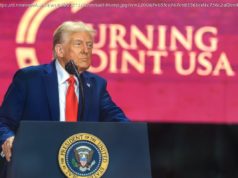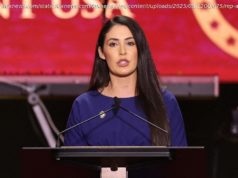Read more about US President Donald Trump defers metal tariffs on EU, Canada, other allies on Business Standard. Trump administration officials have said that in lieu of tariffs, steel and aluminum exporting countries would have to agree to quotas designed to achieve similar protections for US producers
US President has postponed a decision on imposing steel and aluminum tariffs on Canada, and until June 1, and has reached an agreement in principle with Argentina, and Brazil, a source familiar with the decision said on Monday.
The decision came just hours before temporary exemptions were set to expire at 12:01 am (0401 GMT) on Tuesday. “The administration has reached agreements in principle with Argentina, Australia, and Brazil, details of which will be finalised in the next 30 days. The administration is also extending negotiations with Canada, Mexico, and for a final 30 days,” the source said.
Trump imposed a 25 per cent tariff on and a 10 per cent tariff on aluminium in March, but granted temporary exemptions to Canada, Mexico, Brazil, the European Union, and Argentina. He also granted a permanent exemption on steel tariffs to
Trump administration officials have said that in lieu of tariffs, steel and aluminum exporting countries would have to agree to quotas designed to achieve similar protections for US producers.
South Korea’s permanent exemption is in exchange for having agreed to cut its steel exports to the US by about 30 per cent.
Canadian Prime Minister Justin Trudeau said on Monday that any move by the US to impose tariffs on Canadian steel and aluminium would be a “very bad idea” guaranteed to disrupt trade between the two countries.
is the largest source of into the US, with a that is highly integrated with its southern neighbour.
Trump has invoked a 1962 trade law to erect protections for US steel and aluminum producers on national security grounds, amid a worldwide glut of both metals that is largely blamed on excess production in China.
If the is subject to tariffs on the $ 6.4 billion ($7.7 billion) of the metals it exports annually to the US, it has said it will set its own duties on $2.8 billion of US exports of products ranging from makeup to motorcycles.
After roiling markets with tough rhetoric on sanctions against Russian aluminum giant United Co Rusal and tariffs on imported metal, the message from US officials is now turning softer, easing concerns about supply disruptions.
Metals markets were steady on Tuesday and aluminum prices were little changed.
“There seems to be a pattern emerging where Trump makes a big announcement, and then over the following weeks things are rolled back,” Caroline Bain, chief commodities economist at Capital Economics, said by phone from London. “It’s a businessman’s approach, where you make the biggest threat possible, and then use that as a starting point to negotiate.”
and Canadian businesses are warning of more market uncertainty following the Trump administration’s decision to delay US steel and aluminium tariffs for the next month.
President kept the world in suspense on Monday until just hours before temporary tariff exemptions for the metals were due to expire for key allies.
In a presidential proclamation, Trump allowed another 30 days for the EU, and to continue negotiations for permanent exemptions.
The US made an agreement in-principle to remove the tariffs for Australia, Argentina and Brazil, which should be finalised soon, it said.
The EU’s frustration continued over tariffs the US has justified on national security grounds. Last week, French President and German Chancellor both made their case to Trump for why the bloc should get permanent and unconditional relief from the tariffs, partly arguing that they are America’s security partners.
“The US decision prolongs market uncertainty, which is already affecting business decisions,” the European Commission said.
“The should be fully and permanently exempted from these measures, as they cannot be justified on the grounds of national security,” it said.
The president’s decision to delay the tariffs gives the White House breathing room as it weighs leaving the Iran nuclear accord this month and prepares for disarmament talks with North Korea’s Kim Jong Un. The postponement also opens more time for another major priority for the administration: Treasury Secretary Steven Mnuchin leads a contingent of cabinet members to China this week to try to head off a brewing trade dispute between the world’s two-biggest economies.
Trump tweeted Tuesday that there was “great potential” for the U. S. in addressing the trade disparities with other countries.
“Delegation heading to China to begin talks on the Massive Trade Deficit that has been created with our Country,” Trump said. “Very much like North Korea, this should have been fixed years ago, not now. Same with other countries and NAFTA…but it will all get done.”






